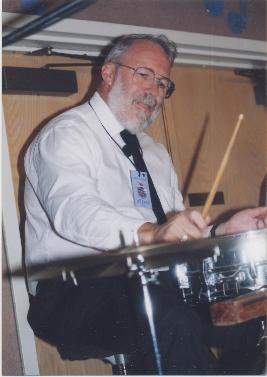more than likely that they will introduce change to the music as well as to the dance styles, and
many of us (and I, being a moldy fig, will probably be among them) may not take readily to such
evolution. (This phenomenon is hardly new, of course. By all accounts Buddy Bolden was a
trailblazer, and the ODJB did not play music to which the ragtime aficionado was accustomed.
Louis Armstrong also changed the course of jazz, as did Duke Ellington, and so on.)
I am not quite sure what the young people of today are—or will be—doing with it. There are
several such bands scattered around the country that I have not heard as well as some that I
have, and with luck others will form. Some of us have heard what the Dirty Dozen, the Rebirth
Marching Band, and the Squirrel Nut Zippers have done over the past few years with traditional
New Orleans jazz, and I must confess it is not exactly my cup of tea.
But for those of us who do not cotton to these new approaches, possibly there will continue to
be bands that try to reproduce, without being mere copyists, the kind of music they have heard
on recordings or at jazz events. A band of young women (two unique characteristics in a jazz
band today) from Canada who call themselves “The Mighty Aphrodite,” while not a “legacy” or
“tribute” band, do not seem to have radically changed their interpretation of one style of
traditional jazz from that which we are used to hearing. Probably others will be attracted to
other styles. And it might be quite instructive to find out from established bands of young
people what it was that attracted them to the music in the first place, how they came to form a
band, etc. I don’t recall ever reading any interviews where such questions were posed and
answered.
So I am not at all sure that traditional jazz will become extinct, but it is something of an
endangered species these days. Possibly things can be turned around by our putting into
practice some of what I have suggested here—and I’m quite sure that other people can propose
even more and different solutions. But if attracting the young to traditional jazz is simply—even
benignly—neglected, as it largely is at the moment, the music may indeed disappear with the last
of us, at least for a few generations until someone will rediscover it, as has happened in the
past. Then there just might be another revival.
But why leave that to chance?
|
|





